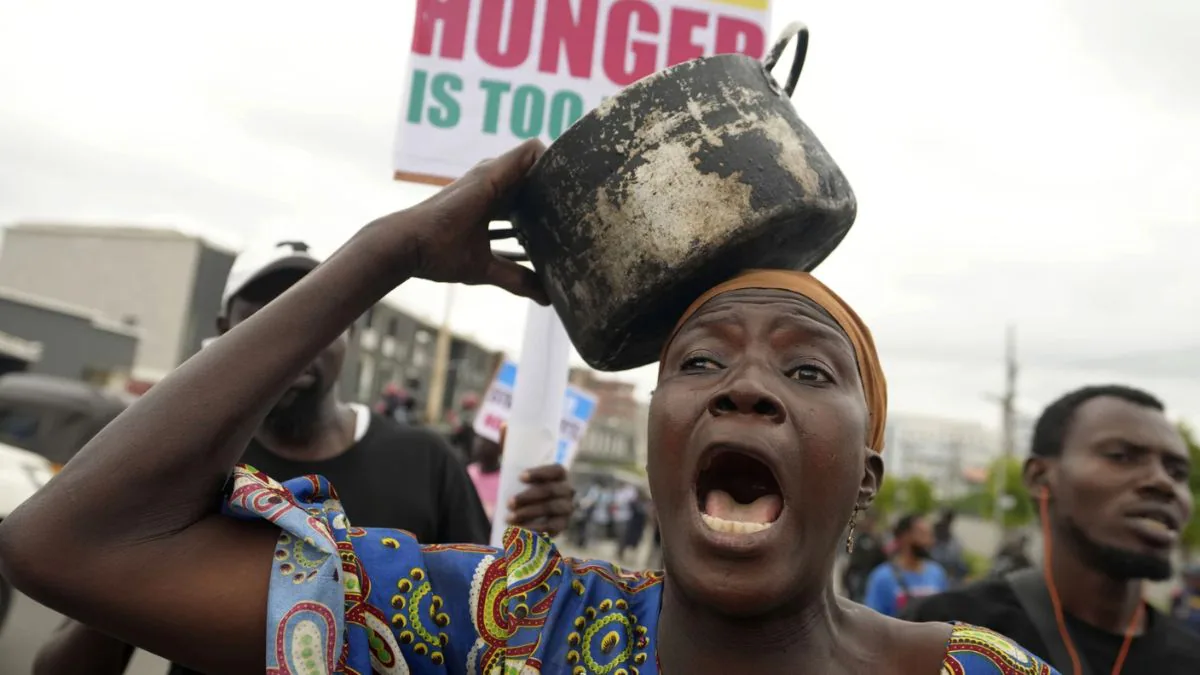News
3.7 Million Nigerians Struggle with Severe Hunger, ICRC Warns
More than 3.7 million people in conflict-affected areas of northeast Nigeria are facing severe food insecurity, according to the International Committee of the Red Cross (ICRC).

More than 3.7 million people in conflict-affected areas of northeast Nigeria are facing severe food insecurity, according to the International Committee of the Red Cross (ICRC).
The Lagos State Government is set to launch a N500 billion agricultural programme aimed at tackling food scarcity and strengthening food systems across the state.
The initiative, titled “Produce for Lagos,” is designed to enhance food production, distribution, and affordability through strategic partnerships with other states and the private sector.
State Commissioner for Agriculture and Food Systems, Ms. Abisola Olusanya, announced the programme at a press briefing in Ikeja on Monday, ahead of the official launch scheduled for Wednesday.
“On Wednesday we will launch the Produce for Lagos Optical Guarantee Fund, as well as the initiative, which is largely a collaboration between the Lagos State Government under the leadership of Governor Babajide Sanwo-Olu and the private sector,” Olusanya said.

She noted the initiative focuses not only on production but also on closing gaps in food distribution and logistics—key factors that have long contributed to food inflation and post-harvest losses.
“We want to minimise post-harvest losses. With post-harvest loss reduction, we will see a drop in food inflation and in health challenges. It will be better for you and me,” she added.
According to the commissioner, the programme aims for Lagos to produce at least 40% of its food needs internally while leveraging land and resources from other states for large-scale farming.
“We need access to more lands to grow food for our people. There are farms and agribusinesses in states like Niger and Taraba doing this at commercial scale, and such partnerships are vital for mutual survival,” she said.
“What happened during COVID-19 showed how a small disruption can lead to chaos. We don’t want that again. Collaboration is critical,” Olusanya stressed.
DON’T MISS: ‘We Have Been Used and Dumped’ — Retired Police Officers Protest
Meanwhile, the International Committee of the Red Cross (ICRC) has raised the alarm over worsening food insecurity in Nigeria’s northeast, where more than 3.7 million people face serious hunger due to prolonged conflict.
Aliyu Dawobe, ICRC’s Public Relations Officer, disclosed this in a statement issued Monday in Abuja. He explained that many affected residents are former farmers displaced by violence, which has disrupted local food systems.
Diana Japaridze, Head of the ICRC office in Maiduguri, said pressure on households is growing as the lean season begins.

“This is the period when families must begin buying food, but many conflict-affected households simply can’t afford it. They’re forced to drastically limit their intake,” she said.
She added that rising food insecurity is fueling malnutrition, especially among children under five and pregnant or breastfeeding women.
“In response, the ICRC is supporting malnutrition stabilisation centres and offering community education programmes to help families care for vulnerable children,” she said.
To address long-term food needs, the ICRC has launched an agricultural assistance programme supporting both rainy and dry season farming. Over 21,000 households have already received seeds and tools, alongside training in sustainable farming.
“The support includes a mix of field crops and vegetables like rice, maize, tomato, and okra—all aimed at increasing dietary diversity and nutrition,” Japaridze said.
She also highlighted collaboration with the National Agricultural Seed Council to restore a key water source for seed testing and greenhouse operations.
Despite these interventions, Japaridze warned that the lean season remains a critical period, with many farmers unable to grow enough to feed their families.
Community voices echoed the crisis on the ground. Modu Umar, a community leader in Dikwa, said, “Right now, we face severe food shortages. Some families walk long distances daily just to collect and sell firewood to afford food. Farming is the only real solution.”

Churi Ibrahim, a 70-year-old farmer from Gajibo, spoke of security risks, “Some people trek three hours just to reach their farms. By the time you get there, you’re exhausted.”
Bintu Konto, a mother of five, underscored the urgency: “Even when they’re afraid, they still go. If we don’t farm during the rainy season, we’ll have nothing to eat.”























You must be logged in to post a comment Login